The Midwifery Council of New Zealand’s capitulation to gender ideology is a perfect case study for future students of ideological institutional capture in the early 21st century.
For the record, it was Wednesday 29th of November 2023, that the Council privately announced their unanimous vote to adopt their new ‘Scope of Practice’ guidelines: a document by which all midwives must abide or they may not practice their profession.
Since at least July 2019, in fawning obeyance to gender and critical race theories, the Council has devoted significant resources to removing any reference to women, childbirth, mothers, babies, or breastfeeding from the Scope of Practice, in both English and Te Reo Māori.
Women aren’t mentioned at all; neither is breastfeeding. Childbirth is described just once in list form as ‘birthing’; a less specific word with quite different connotations and usages.
They tried but failed to get rid of all mention of babies - one remains, hidden in text about professional development; a midwife may like to explore continuing education in “wider sexual and reproductive health or infant healthcare”.
Twice during their multi-year effort to vanish us, the Council asked the public for feedback on their draft.
But they were never going to listen to any objections, from anyone.
The first time they asked for feedback, in April 2022, they massaged the response into a report that failed to hide the overwhelmingly negative reaction.
The second time, having altered almost nothing in the draft, they asked for feedback again. There was no attempt at reporting back to us after that, and when last week the Council made their quiet notification, they had again changed nothing they had already written.
They did add however what their current Chief Executive Lesley Clarke called “an explanatory paragraph”; perhaps to complement the illustrated account of “…the path they have travelled” on their Project Team’s self-described ‘journey’ to this point. Clocking in at over 1000 words, the story of their journey is over twice as long as the Scope of Practice.
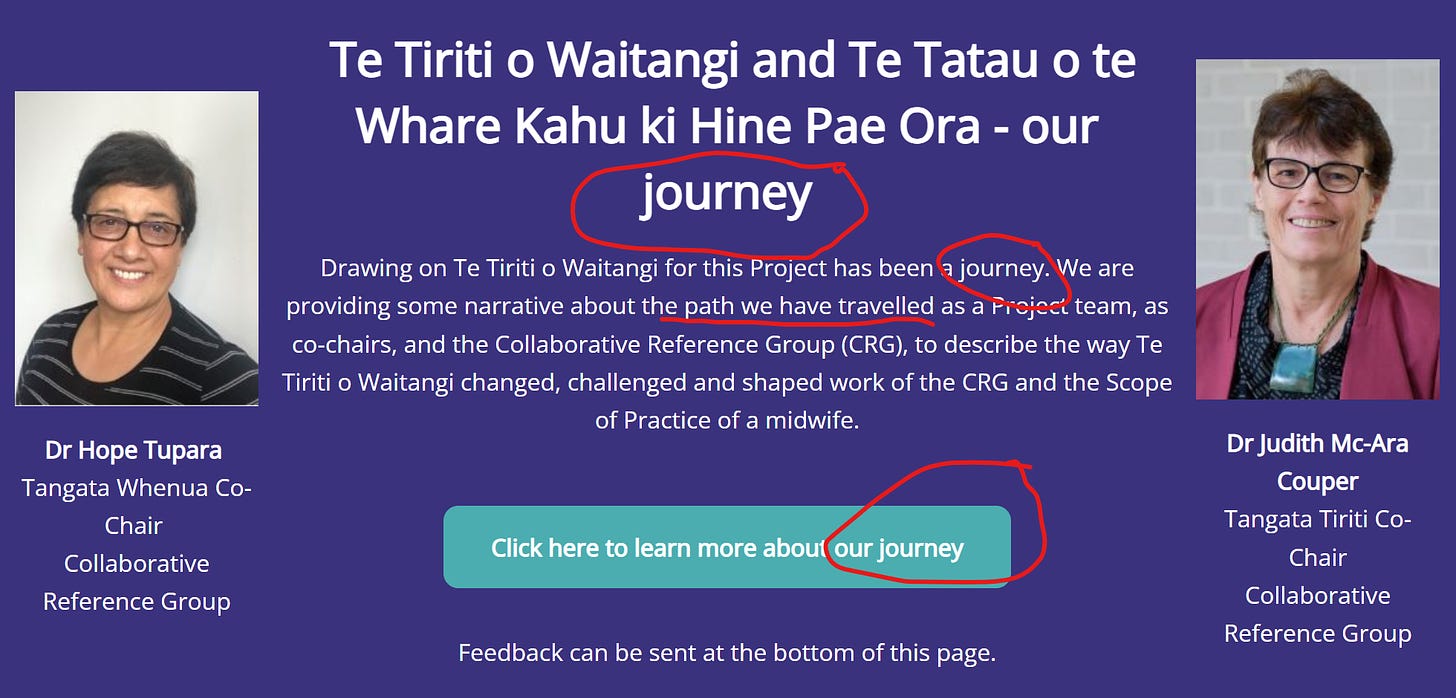
Let’s look at some other numbers.
397 is the number of words in the old 2010 Scope of Practice guidelines, or about the length of an average Stuff entertainment piece.
19 is the number of people (not including project managers, executives and consultants) it took to rewrite it.
320 is the number of words in the new Scope of Practice; 77 fewer than the old one; we know which words were erased.
$377,000 is the estimated funding cost outlined by the Midwifery Council to do this.
2 is the number of years they anticipated it would take.
4 is the number of years it actually took
$?? - Unknown is the actual financial cost
“Over my dead body” takes on a new dark and deeply upsetting meaning, when I look at these numbers. Here’s another number; zero - the number of “explanatory paragraphs” that will induce me to stop talking about this.
From start to finish, the Midwifery Council have behaved like a rogue institution, being less than forthcoming about their intentions in their funding application and acting in bad faith with the public, pretending that the feedback would be heard.
Sometime between June and the first week of August in 2019, the Council had a meeting, attended by two Ministry employees.
It must have been quite the meeting, whispered about in the hallways afterward, because by the 5th of August, an unknown person had filed an Official Information Act request for records of any communication between the Ministry of Health and the Midwifery Council pertaining to it.
The OIA returned a funding proposal and accompanying letter, written by then Midwifery Council CEO Sharron Cole to the Ministry of Health, introducing their plans to review their Scope of Practice 2010 guidelines.
Dated 7th of August 2019, it is an illuminating letter to parse, keeping in mind that when they took all the words for women out, they didn’t just remove them, they replaced them, in both Te Reo Māori and English, with “whānau”.
In the penultimate paragraph of the OIA letter, Sharron Cole had to be at least a little bit specific about the focus of the project in order to get the money from the Ministry. She needed to say what she wanted to do (take all the words for women out and replace them with whānau) without actually saying it. They would never get any money if she said it like that, or at least there would probably be a bit of a fuss.
She writes instead that the focus of the project will be “…Centered on a continuity of care model, with women in the context of the whānau at the centre…” .
Apart from the little slip with which bit was getting centered, it’s cleverly done. “Women in the context of the whānau” could once upon a happier time have been interpreted as Sharron saying that the Midwifery Council desires pregnant women’s family situations to be considered as part of a care plan.
But of course that’s not what she meant. Midwives have been obliged to take a woman’s family situation into account with every woman they have ever cared for. It’s an established part of the job. Sharron was writing in coded language for other ideologues to recognise and the uninitiated to miss the real meaning of - and it worked; the project was funded and began a month later in September 2019.
There are two other points of particular interest in this letter.
The first relates to one Dr George Parker, whom I first encountered in 2022 in a Sept 4th Herald print article entitled “Women are Not Being Erased”.
Dr Parker is not on the Council; she is a self-proclaimed ‘non-binary’ academic working at Victoria University, who has nevertheless been in a very influential position throughout. Her vocabulary of ‘embedding, cultural safety and midwives needing to go on journeys’ is identical to that of the project team; but even more explicitly ideological.
Her various connections are underlined below, along with a snapshot of her talking about ‘embedding cultural humility’ into midwifery education.
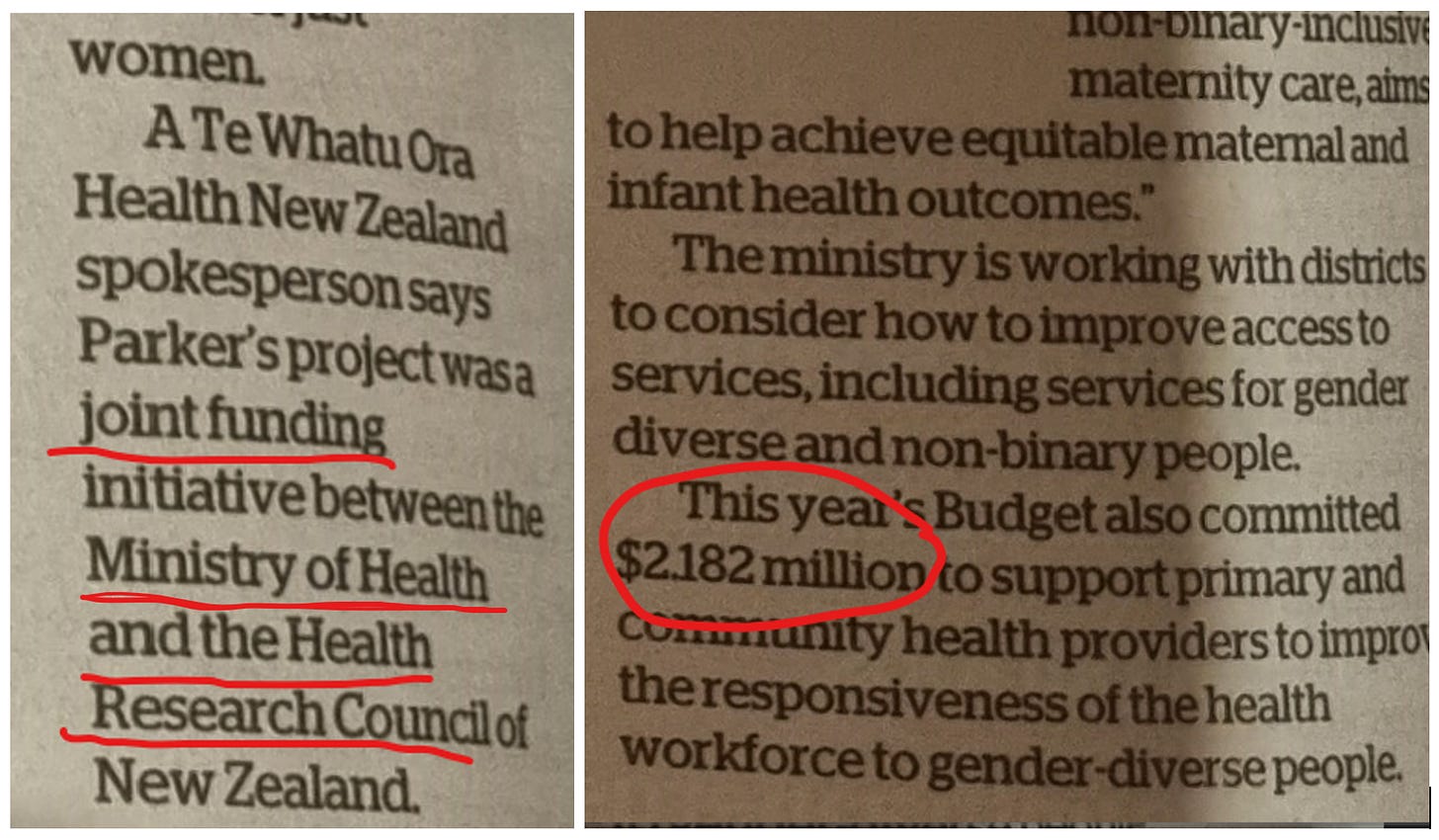
This was their plan, whomever the initial gender ideology acolytes and Queer Theorists were at the beginning of the whole Council’s fall into hubris.
‘Embedding’ ideas into midwifery education is what Sharron Cole was talking about when she said in her letter to the Ministry of Health: “This means starting first with the Scope of Practice, and then deciding what changes need to be made to the current competencies and pre-registration education standards to ensure all midwives are able to practice safely within the Scope”.
They’re attempting to embed queer theory and critical race theory into midwifery education so deeply that it can never come out. They mean ‘embed’. The Midwifery Council didn’t spend four years carefully considering the ramifications of their project or putting women at the centre of anything. They spent four years ideologically capturing an institution.
Dr Parker also talks about the need for “mandated cultural humility in relation to trans and non-binary people and others”.

This is precisely what the Midwifery Council has just done with their Scope of Practice. They have mandated that our midwives must be culturally humble, specifically to trans and non-binary people ‘and others’.
This brings me to the last point of note in Sharron’s letter to the Ministry, in the final sentence.
“It is essential that we have the College and Māori on board in the earliest stages”.
To their everlasting credit, unless they have since changed their minds, the College of Midwives did not get on board and refused to back the Council.
As for getting ‘Māori’ on board, I will refer now to a letter to which I was a signatory in 2022.
It is a public letter of opposition and condemnation from Mana Wāhine Kōrero, national and international Rōpū of Tangata Whenua wāhine and supporters, to the Midwifery Council on this matter.
It includes links to other writing from co-founders Dianne Landy and Michelle Uriarau, including previous attempts to communicate with the Midwifery Council and the public about what is happening.
It was an essential piece of feedback from a wāhine Māori organisation to the Midwifery Council, specifically on matters Māori, and they ignored it. So much for ‘embedding Te Tiriti o Waitangi into their practice’.
I am not Māori. But my children are.
I am a person who believes in the power of oaths. That is what the Treaty is to me, an oath; a promise to act fairly, and also an oath oft betrayed. Some years ago now, when I first became aware of the swirling and increasing conversations around race in New Zealand and whether it was okay to say ‘Pakeha’, I also came across the term ‘Tangata Tiriti’.
At the time, I thought, “Well, if Pakeha is no good, Tangata Tiriti is something I could get behind - a society's recommitment to upholding our oaths; that sounds like a good place to start as a changing nation”.
But I soon changed my mind.
What the Midwifery Council has done is reveal the hollowness of this enticing idea and the racism at its core.
The goal is to steal Māori cultural and artistic expression, discarding the rest. Cosplay clothing, the odd word in Te Reo here and there, a poetic and mysterious description of ‘ways of knowing’, the ability to perform a pepeha and the falsification of history; all this will be used as the legitimising factor for adopting gender and critical race theory, which is a Pakeha academic belief system.
This is the real journey they went on, using a document called ‘Te Poutama’. As they see it, it was a process of ascension through the levels of awakening (cult!), learning that Pakeha calling themselves New Zealanders was bad, and that even if Māori ask you not to treat them differently you should be alert for an opportunity to do so anyway. They learned about unconscious bias and institutional racism and internalised racism, of course.
My children are not so weak that people must be humble toward them or they will break. They understand the significance of statements like “I’m not into that Māori stuff” more than the Midwifery Council ever will, and they do not require Crown intervention to help them work it out.
They are the opposite of racist and weak; they are thoughtful and strong - and true humility is not a performance but a quiet trait, reflected not in one's statements but in one's behaviour. The title of ‘humble’ as an example of good character is conferred upon one by others, not boasted about by oneself. The Midwifery Council has learned not humility but servility.
I believe the Treaty still has a place and a role in our future, for the time being at least. I believe that solutions to our problems exist, although I’m not sure I know what they are.
But this is not the way.
The purpose of making another promise to honour the Treaty is to demonstrate not falsity but trustworthiness, and the Midwifery Council has done the opposite of that. At every step on their journey they have not ascended to greater consciousness but failed the test of faithfulness to any honourable principle.
The conclusion I came to after reading the story of their journey is that the Pakeha and Tauiwi members of the council call themselves Tangata Tiriti, but they are in fact craven and cowardly and in my opinion not worthy to represent me and my Pakeha family in any contract.
They agreed to steal the word ‘whānau’ and force it into English to mean things it does not mean.
They did this because they were too ignorant of all things Māori to question it overmuch when they were told this was the way of Māori. They lasted only a handful of meetings before they all caved. They were afraid to be called racists because they were so ignorant that they were not sure that they weren't racist. They did not wish to actually go out into the world and make new friends among Tangata Whenua and ask them about all this. They wished to be told how to portray that they have done so, to escape the uncomfortable feeling they got when they couldn't argue because they were ignorant. They needed to demonstrate that they understood “what is required of them as Treaty partners”. (From “Our Journey”, the Collaborative Reference Group, 2023).
It is not evil or wicked to not know very much about the culture of another by virtue of simply not knowing.
But it IS wicked to pretend that you know more than you do. I know that they are doing this, because I am them; I understand what it’s like to not know very much, and to want to escape from feeling bad about that with some kind of practical action. There is a choice to be made in these moments, and I know that they chose their own self-image rather than truthfulness or honour or women to protect.
They were willing instead to harm every woman in the country, to worsen the likely outcome for wāhine Māori still further; to make all women invisible in our respective languages during one of the most important moments in our lives, as a sop to their own self-esteem.
So they listened to what queer theorist Dr Elizabeth Kerekere told queer theorist Dr George Parker about Māori and gender (lies) and they donned the (humiliating) mantle of ‘cultural humility’ and convinced themselves they were being good allies. They swallowed and repeated complete fabrications about my children’s history for the purpose of making themselves feel better about their own ignorance for four years, and then mandated this behaviour for everyone in their sphere of the world.
All this, in service to an idea that suggests that my grandchildren might like to sterilise themselves and/or cut off their genitals one day, either because it’s their cultural heritage and Grandma's racist family stole it from them, or because Grandma’s family just wasn’t as enlightened as their Māori whanau about children being sterilised. Either way they wind up lied to and unable to have children of their own.
That’s racism. If this is what it means to be Tangata Tiriti, I will call myself a Pakeha New Zealander until the end of my days rather than align myself with that. I will never teach my children to be ashamed of either side of their family, or tell them lies about their own history, or support an ideology that harms my children’s relations; their whānau, whom I love. Never.
There is, I believe, one ray of hope. At the end of their announcement about their new Scope of Practice, CEO Leslie Clarke mentions “a few further steps” the Council must take before the guidelines come into effect.
Before they become binding, according to secondary legislation, the guidelines must by law be published in the New Zealand Gazette, the government’s newspaper of record. Prior to that, the Minister of Health must present it to the House of Representatives, who may disallow it.
If our new Minister of Health Shane Reti should be so brave, here is an opportunity to begin the process of liberating not only the Council of Midwives but the whole Ministry of Health from the slithering tentacles of gender ideology and critical social justice theories, and uphold his own oath. He would be remembered for it, if he chooses this.
Should he not, I take a small comfort in knowing that one day the Midwifery Council will regret what they have done, and bit by bit the records will be encouraged to fade away into obscurity and be lost; but the New Zealand Gazette will record their betrayal of women of every origin forever, and it will be a cautionary tale, not a shining example, for those future students of institutional capture.
Forty women and two thousand, six hundred New Zealand babies died while the most powerful midwives in the country deliberately and repeatedly tried to remove the words and therefore the concepts of women and babies from our midwives’ Scope of Practice.
For shame.
Sarah Henderson
With thanks again to PlainSightNZ for printing this for me today.
*Updated 13/12/2023, with additional link to Journey document, cached Scope of Practice links, updated link and accompanying caption to Dr Parker’s video. Minor edit, ‘conclusion I came to’.




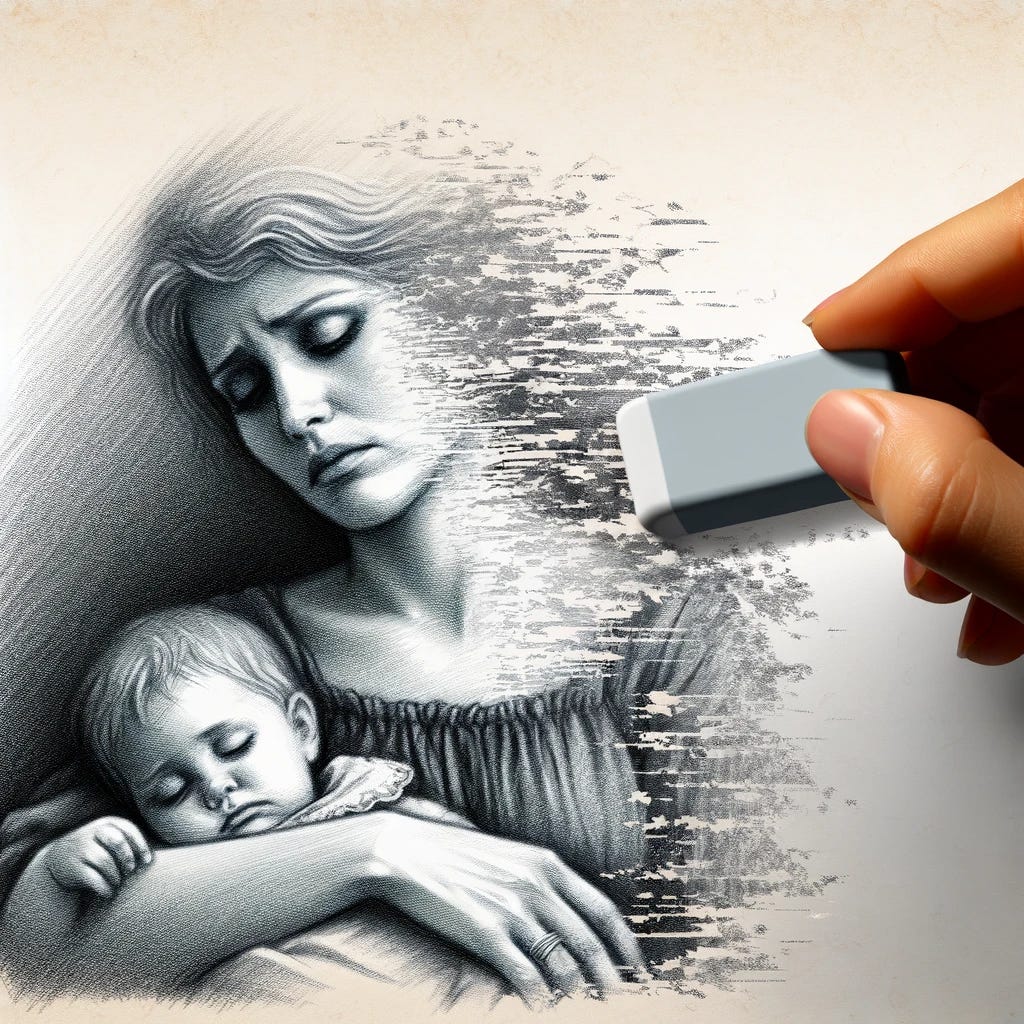
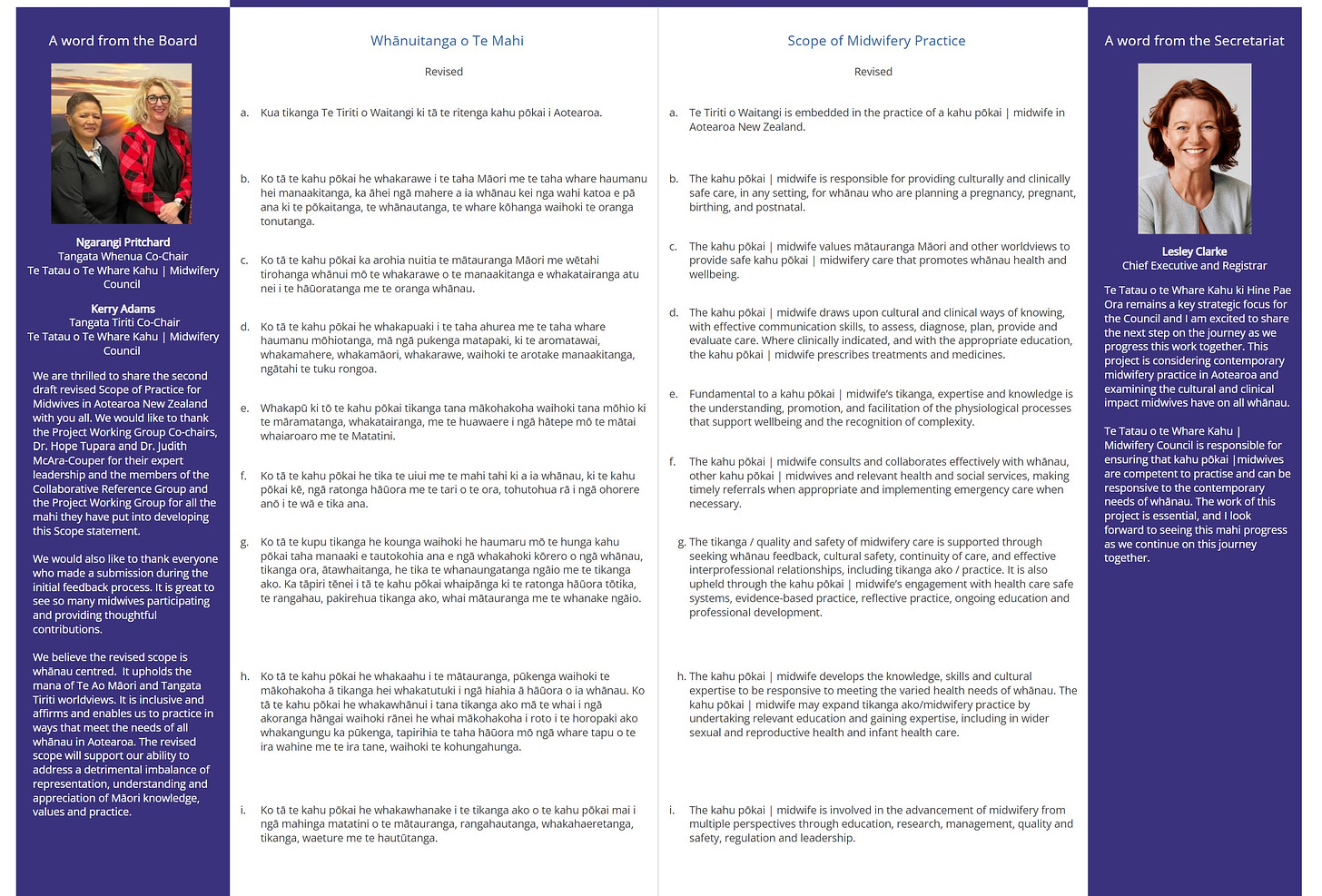
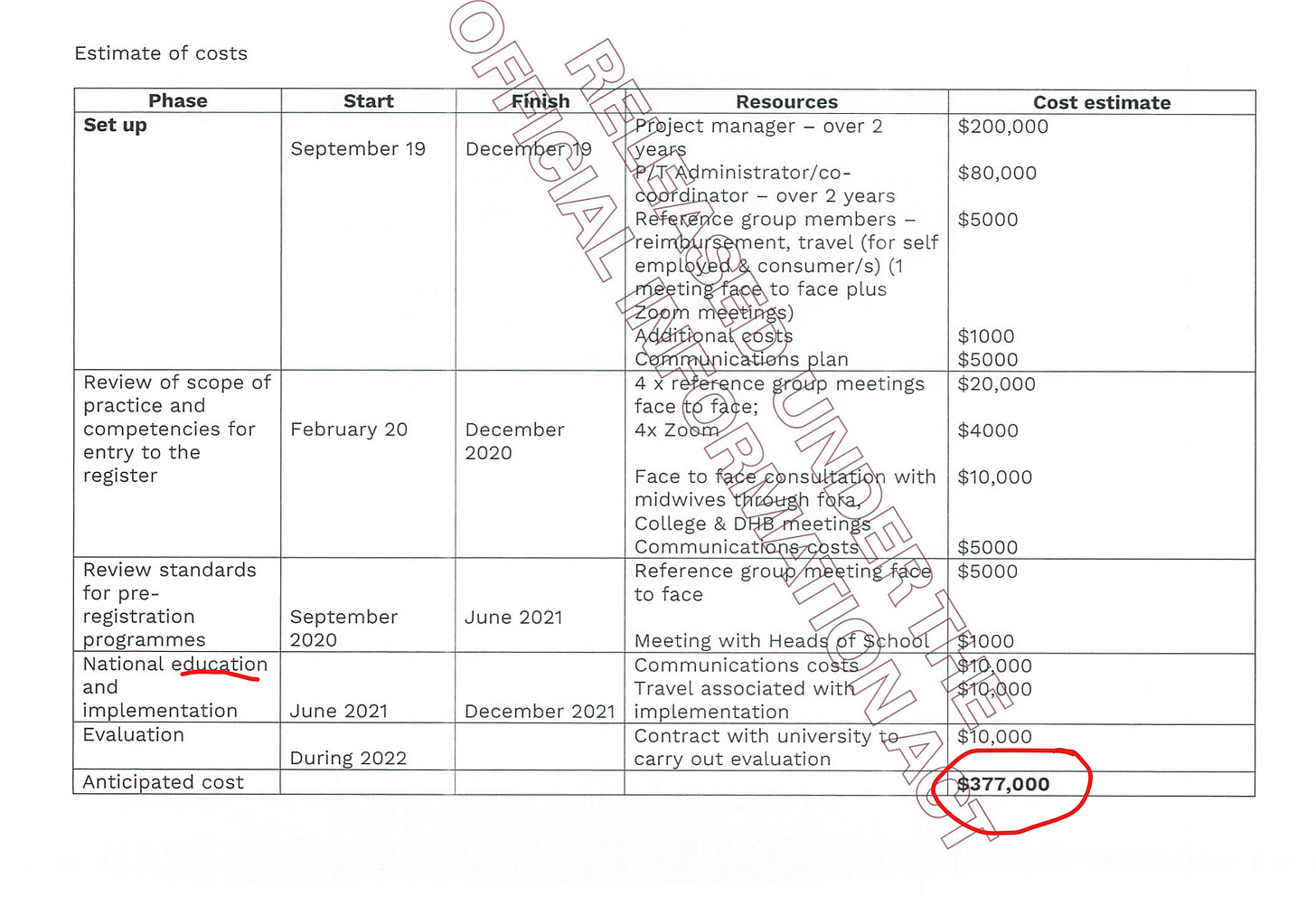
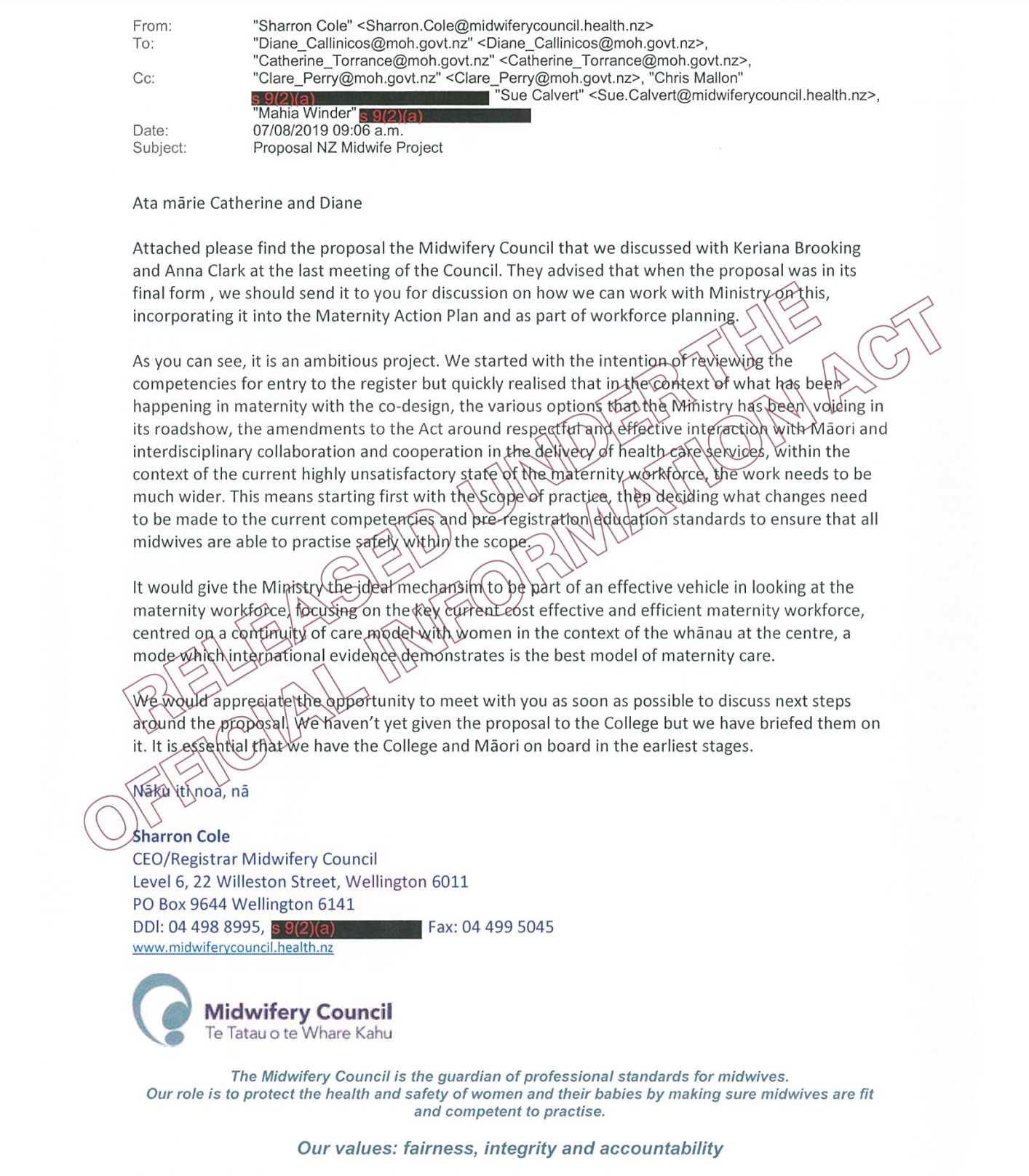


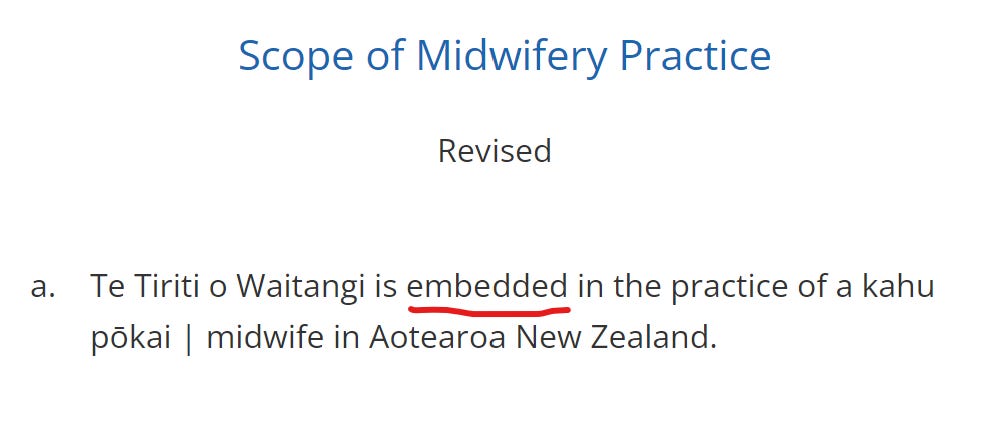

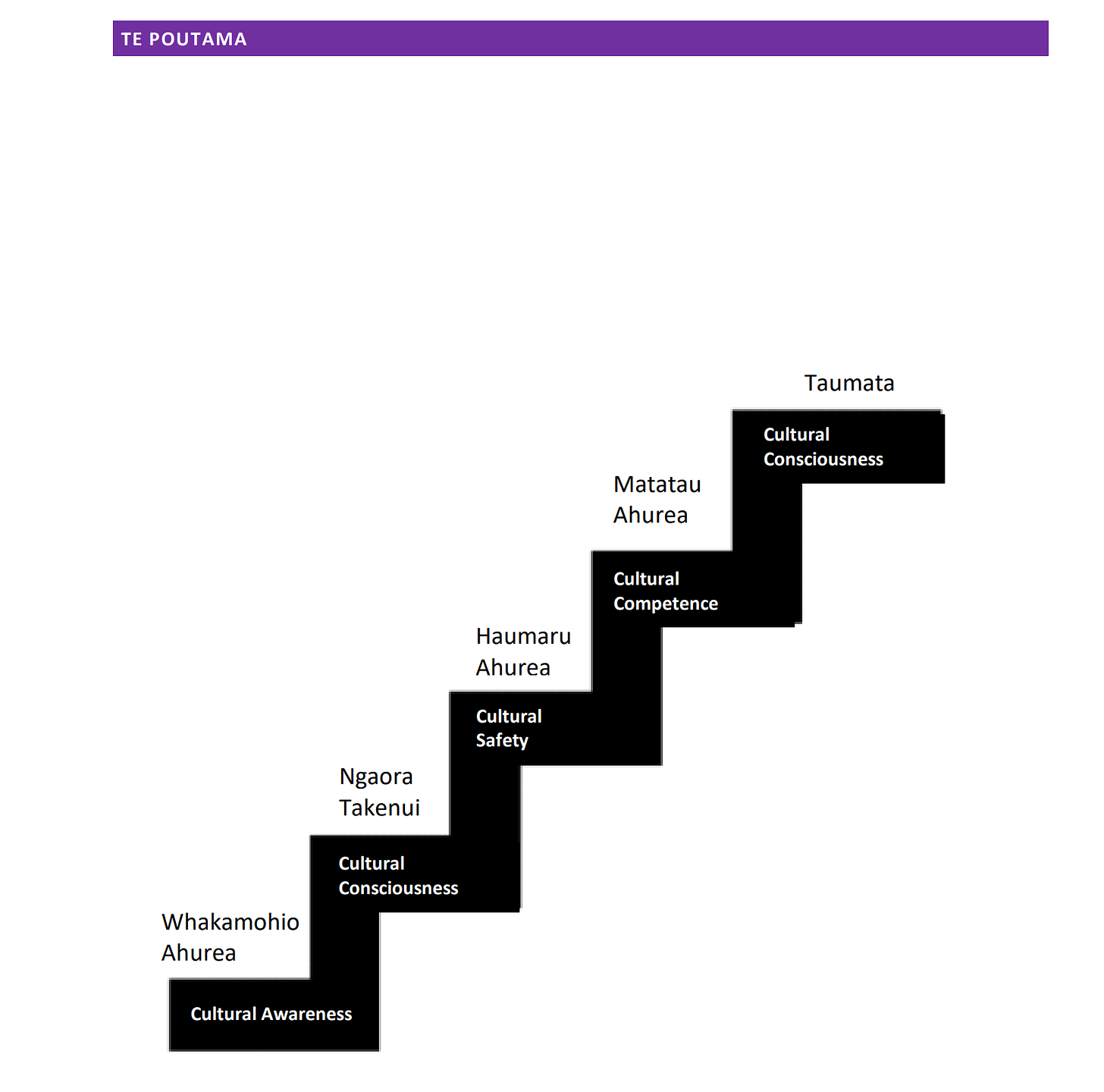

You are welcome, so welcome. It is much worse to have to live it than write about it, I'm so sorry. Reason WILL return one day, I know it, because we women will not stand for this, they might get away with it for a little while, but we will win in the end. xxxxx
I am so sorry that you are not able to practice anymore - that makes me so sad. I LOVED my midwives when my children were born, they were brilliant, kind, empathetic, knowledgeable, everything you need from a woman helping you give birth. That is absolutely shocking about the untested medical interventions - I was a newborn hearing screener some years ago and informed consent was required for us - for an untested medical intervention, omg - it really is madness. Inversion is the word, isn't it.